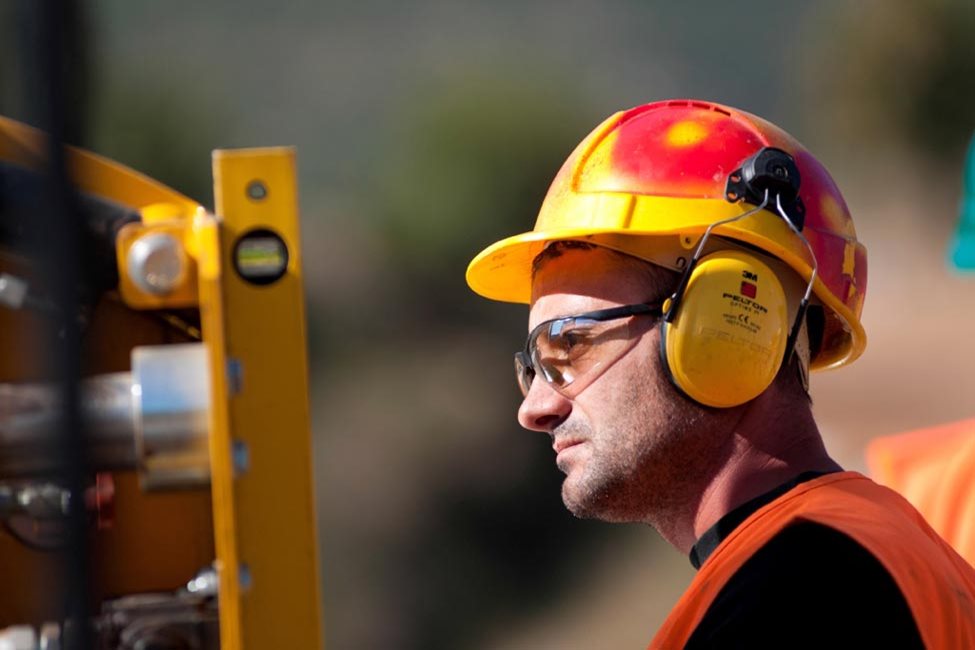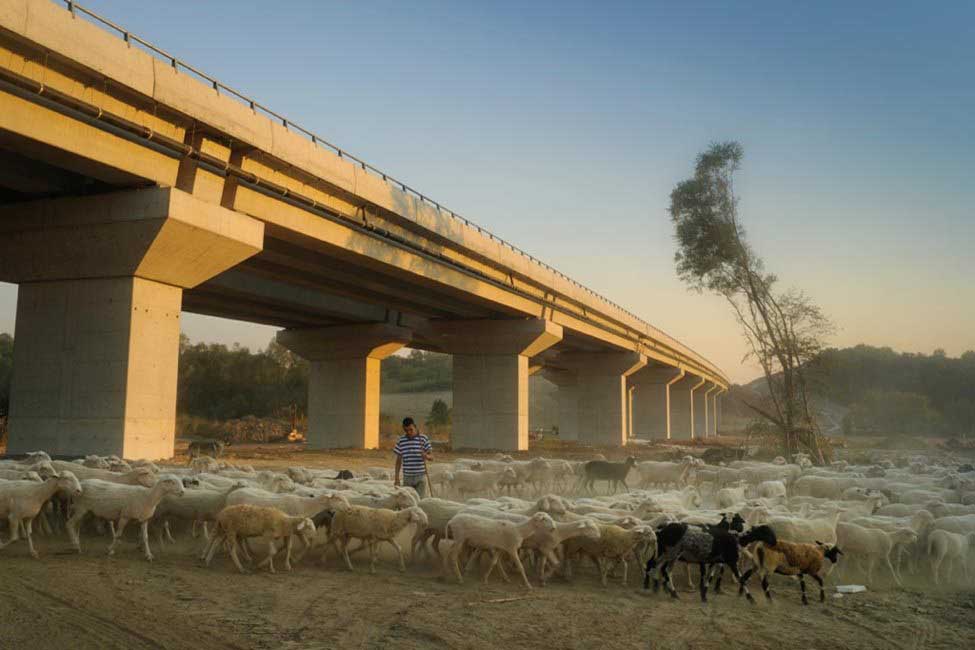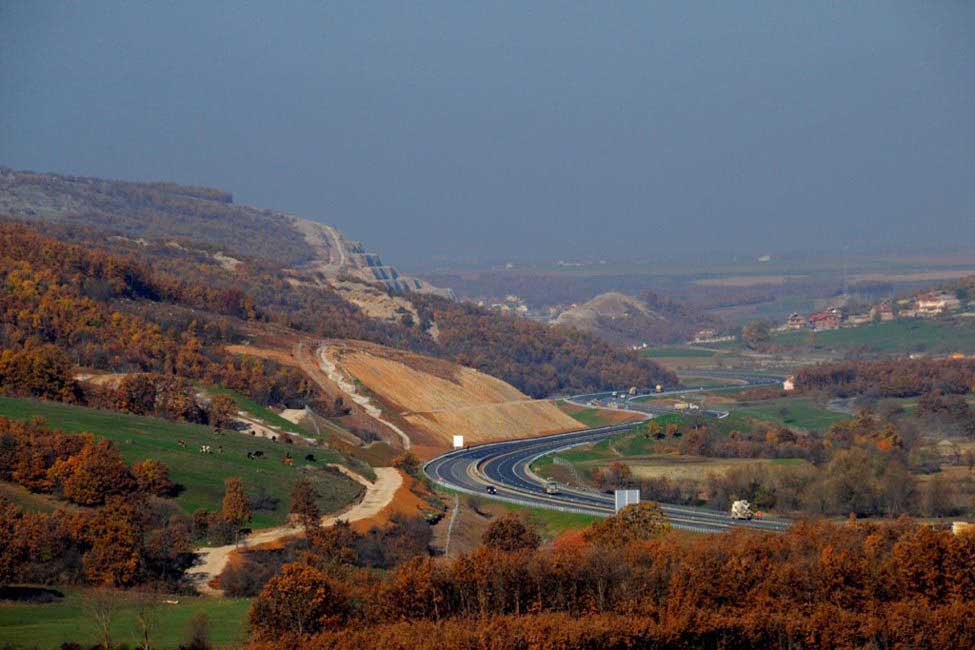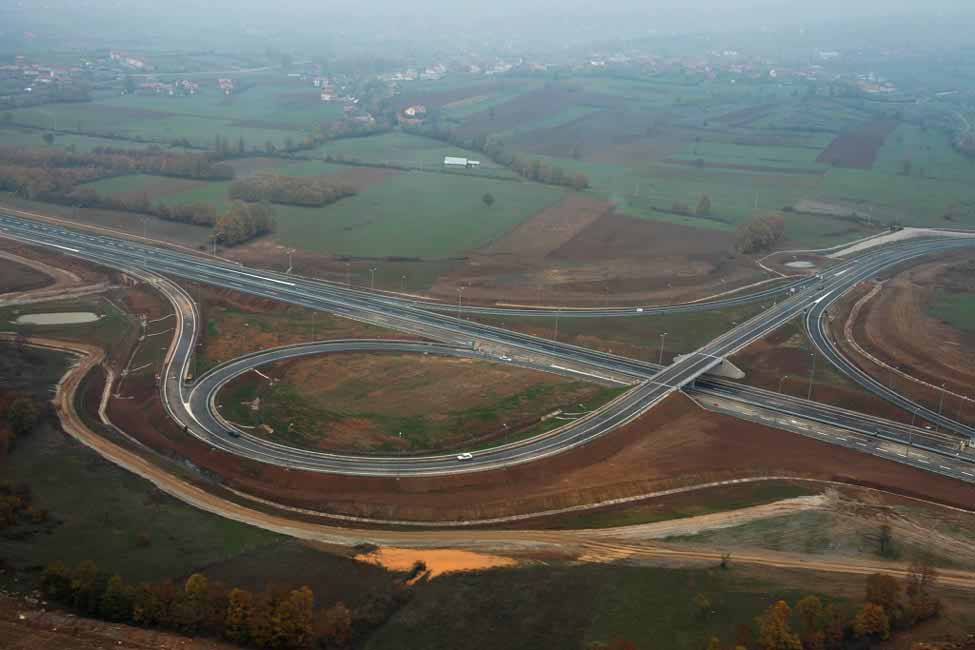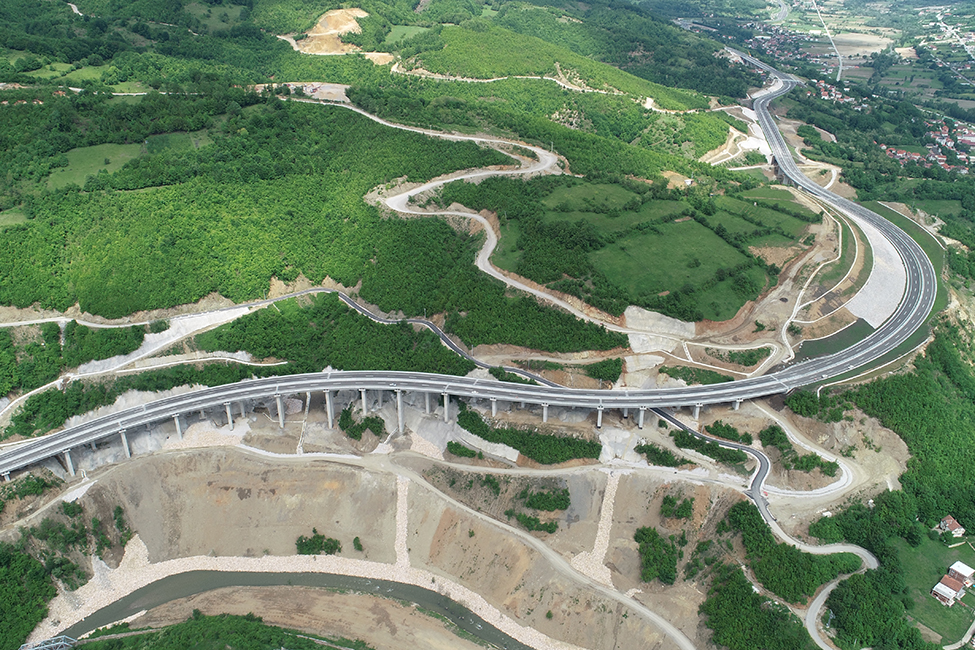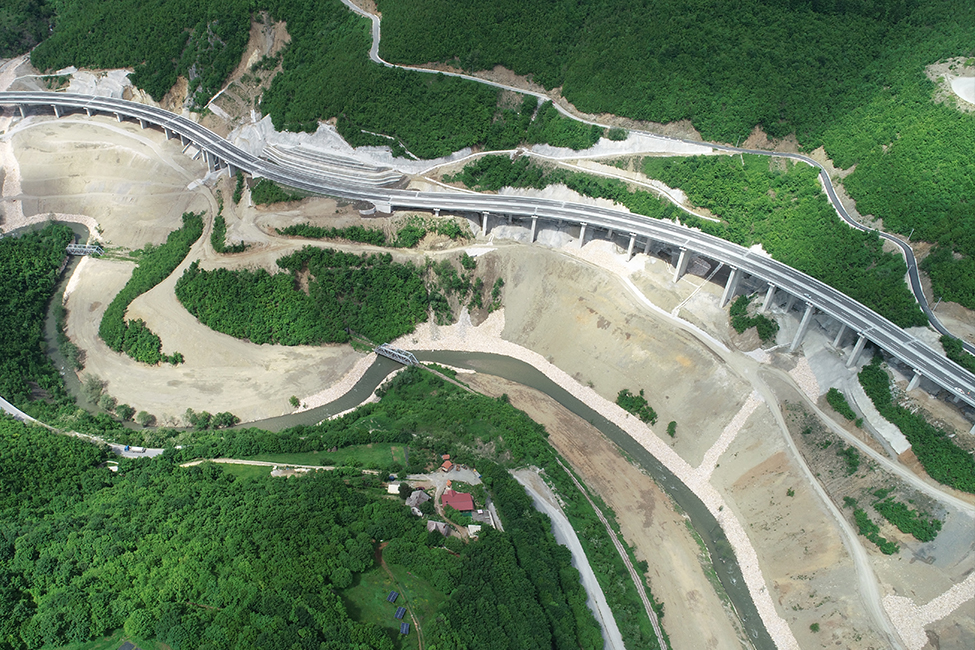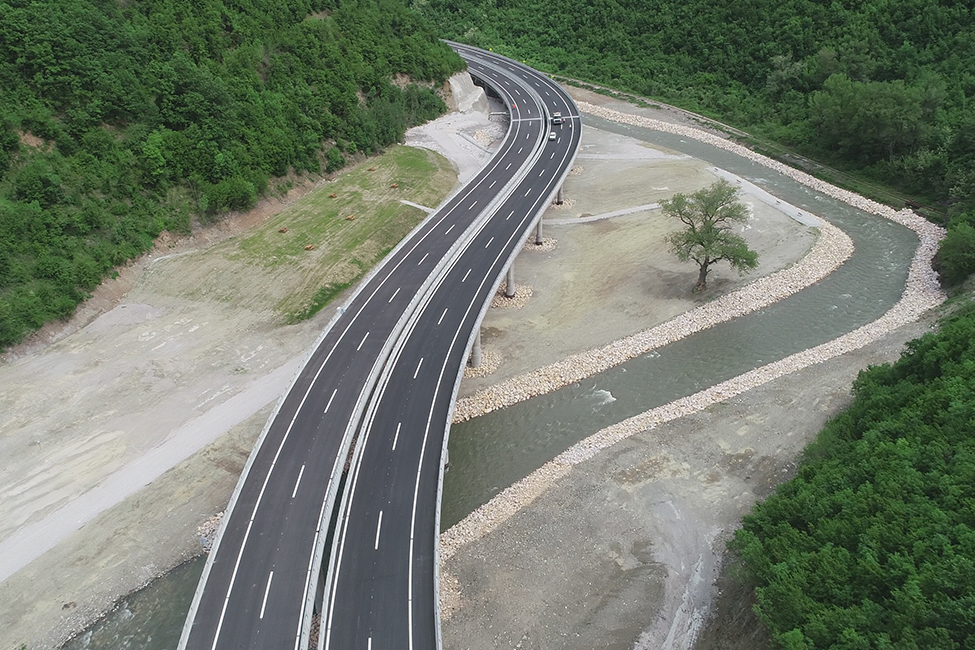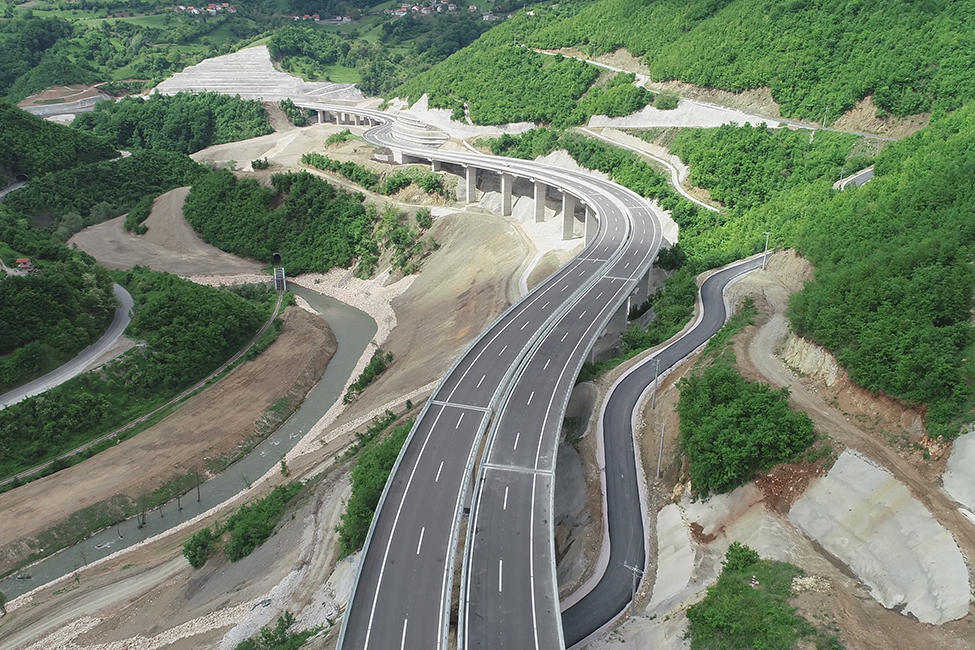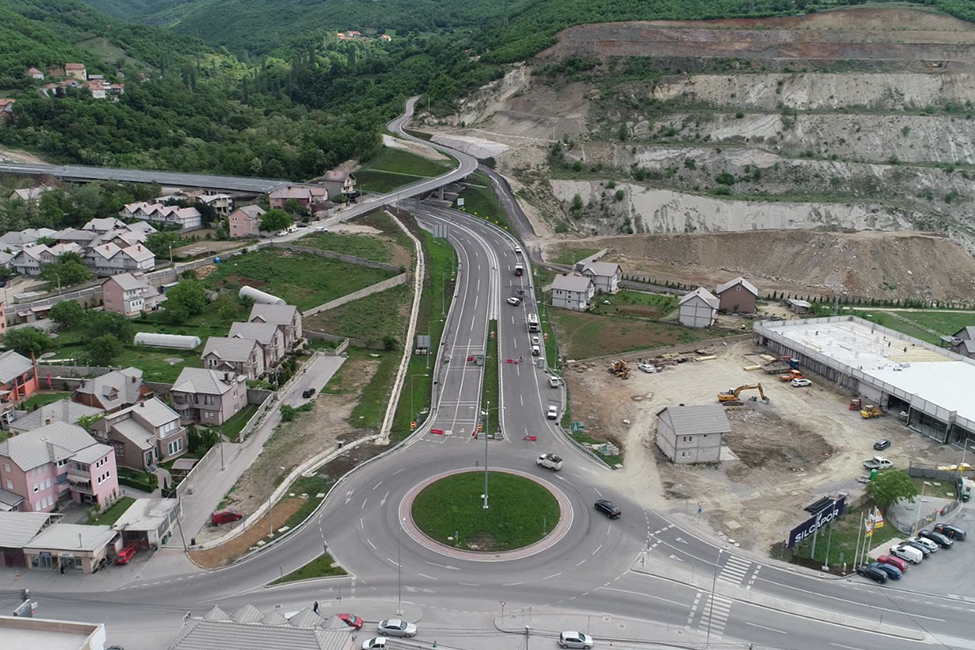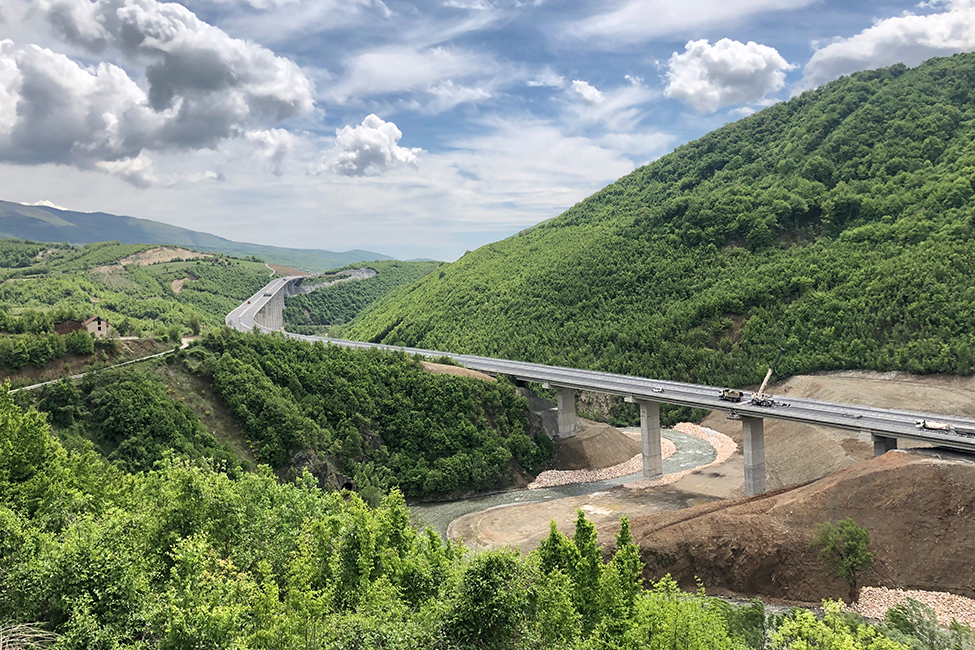Increased connectivity across the Balkans
Route 6 is a 65-km (40-mile) four-lane motorway that stretches from the country’s capital, Pristina, to North Macedonia. The motorway halved the travel time between the two points to just 45-minutes.
Route 7 is a 102-km (63.4-mile) dual-carriageway that runs from Morinë, at the southwest border with Albania, to the north of Kosovo’s capital, Pristina. Route 7 was Kosovo’s first motorway and it serves as the centerpiece of the country’s national transport system. Route 7 was completed in record time.
Local capacity building
Bechtel-ENKA placed a high priority on employing Kosovars and local suppliers to benefit the local community and help Kosovo in the future.
At peak, the Route 6 project was the largest employer in Kosovo – 80% of the 3,350-strong workforce were Kosovan. The joint venture hired local subcontractors for about 70 percent of the work and excelled at procuring goods with local content. Supply chains built by the project team are expected to help serve future infrastructure projects in the region and contribute to long-term economic vitality in Kosovo.
In addition, local employees received almost 100,000 hours of training that provided them with new skills to use on future projects.
The local investment during the construction of Route 7 was similarly impressive. The project hired a workforce that included 70 percent local Kosovars and more than 10,000 Kosovars received training that provided them new skills that they can use in future jobs.
Sustainability at the core
The team focused on raising awareness about the environment by planting thousands of trees with students to form a green corridor alongside the motorway and initiating events including planning Kosovo’s first national short movie competition focused on the environment.
Alternative approach saves time and money
The Bechtel team delivered the motorway while maintaining a high level of safety and quality. Route 7 traverses mountainous terrain and has 11 bridges, four interchanges and 22 overpasses and underpasses. Before construction began in 2010, the team proposed a plan that included an alternative alignment for the motorway. The new alignment eliminated more than 3 miles (nearly 5 kilometers) of costly tunnels, saving time and hundreds of millions of euros for the government.


